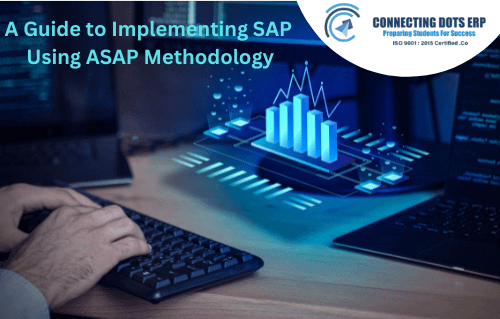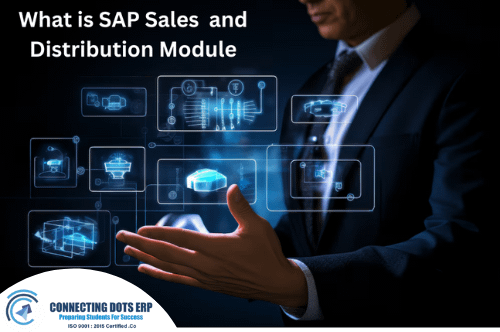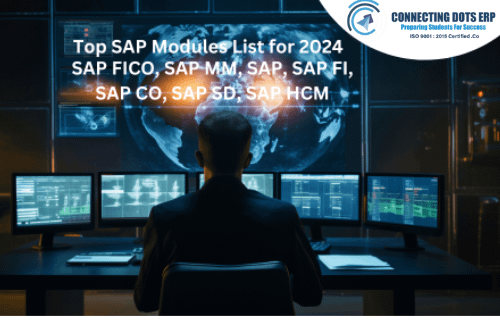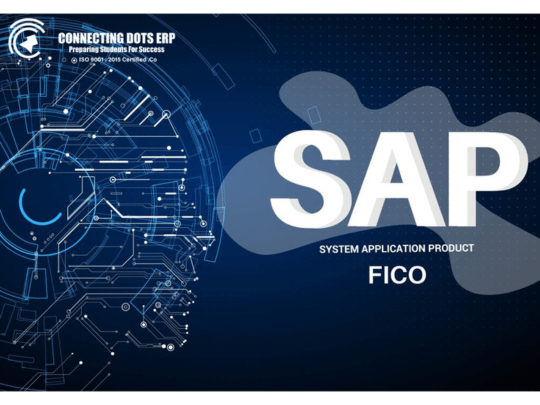SAP Course Syllabus Overview, Breakdown, and SAP Interview Q&A
The world of SAP offers a vast landscape of career opportunities. With its comprehensive suite of enterprise resource planning (ERP) solutions, SAP empowers businesses to manage every aspect of their operations. If you’re considering embarking on a rewarding career path in SAP, this blog serves as your comprehensive guide. We’ll delve into the typical structure of SAP course syllabus, explore key topics covered in the syllabus, and equip you with potential interview questions and insightful answers. here are numerous institutes offering a variety of SAP courses in Pune to suit your needs and learning style.
Understanding SAP Training Courses
SAP training courses come in various shapes and sizes, catering to different learning styles and levels of expertise. Here’s a breakdown of some common formats:
- Official SAP Training: Offered by SAP itself, these courses provide a standardized learning experience with certified instructors. They typically cover specific SAP modules and culminate in an official SAP certification exam.
- Authorized SAP Training Partners (ASTPs): SAP collaborates with a network of authorized training partners who offer various SAP training programs. These programs can be tailored to specific regional needs and may cover broader industry themes in conjunction with SAP functionality.
- E-Learning Courses: Numerous online platforms offer self-paced e-learning courses on different SAP modules. These options are often more affordable but may lack the depth and instructor interaction found in traditional classroom settings.
Registration Link: https://connectingdotserp.in/
Call Now: 9004002958 / 9004001938
Regardless of the format, most SAP courses follow a structured approach, typically encompassing the following elements:
- Introduction to SAP: This introductory section provides a high-level overview of SAP as a whole, its core functions, and different modules available.
- Module-Specific Training: The bulk of the course delves deeper into a specific Fundamental of SAP module Sales and Distribution(SD), Finance (FI), Human Resources (HCM), or Supply Chain Management (SCM). This section focuses on the functionalities, processes, and configuration options within that module.
- Hands-on Exercises: To solidify learning and application, most courses incorporate hands-on exercises in a simulated SAP environment. These exercises allow participants to practice real-world scenarios and gain practical experience.
- Certification Preparation: Many courses provide guidance and resources for preparing for official SAP certification exams. This ensures participants are well-equipped to validate their knowledge and skills.
Syllabus Breakdown: Key Topics Covered in SAP Courses
The specific course content will vary depending on the chosen module. However, here are some common topics you might encounter in a typical SAP course:
- SAP Navigation: Learning how to navigate the SAP user interface, locate functionalities, and personalize your work environment.
- Business Process Integration: Understanding how SAP modules integrate with each other to support seamless information flow across different business functions.
- Configuration and Customization: Grasping the fundamental principles of configuring SAP settings to meet specific business needs.
- Data Management: Exploring how data is stored, managed, and retrieved within the SAP system, including concepts like master data and transactional data.
- Reporting and Analytics: Learning how to generate reports and analyse data using SAP’s built-in reporting tools.
- Security and Compliance: Understanding user roles, access controls, and security protocols within the SAP system to ensure data integrity and compliance with regulations.
- Best Practices: Gaining insights into recommended practices for using SAP effectively and efficiently within an organization.
Registration Link: https://connectingdotserp.com/
Call Now: 9004002958 / 9004001938
Conquering the Interview: Anticipating SAP Q&A
Landing your dream SAP job requires a successful interview. Here are some potential interview questions and insightful ways to answer them:
1. Why are you interested in a career in SAP?
- Answer: Express your genuine interest in business process optimization and highlight your fascination with SAP’s powerful solutions. Mention how you see SAP as a key driver of business success and how you want to contribute to that success.
2. What specific SAP modules are you familiar with?
- Answer: Be honest about your current knowledge level. If you’ve taken a course, mention the specific module and highlight key functionalities you’ve learned. Express your eagerness to learn more and expand your SAP skillset.
3. Tell me about your experience using SAP in a practical setting.
- Answer: If you have hands-on experience (e.g., from a course or on-the-job training), describe your experience with specific tasks you’ve performed within SAP. Emphasize your ability to navigate the system and utilize relevant functionalities.
4. What are your learning strategies for staying updated in the ever-evolving world of SAP?
- Answer: Showcase your commitment to continuous learning. Mention your interest in pursuing relevant certifications, attending industry events, or utilizing online resources to keep your skills current.
5. How do you approach problem-solving when working with complex systems like SAP?
- Answer: Demonstrate your analytical skills and problem-solving approach. Highlight steps like identifying the issue, researching potential solutions, testing different approaches in a test environment (if applicable), and documenting the solution for future reference.
Bonus Tip: Be prepared to ask insightful questions during the interview. This demonstrates your genuine interest in the role and the company.
Here are some examples of good questions to ask:
- What are the biggest challenges your team currently faces when working with SAP?
- What opportunities for professional development are available for SAP professionals within your company?
- Can you describe a typical day-to-day workflow for someone in this position?
Registration Link: https://connectingdotserp.in/
Call Now: 9004002958 / 9004001938
By understanding the typical structure of SAP courses, familiarizing yourself with key course topics, and anticipating potential interview questions, you’ll be well-equipped to embark on your successful journey in the exciting world of SAP.
Beyond the Course: Continuous Learning and Career Progression
Remember, a successful SAP career is built upon a foundation of continuous learning. Here are some tips for ongoing development:
- Pursue SAP Certification: Consider pursuing official SAP certifications in specific modules to validate your expertise and enhance your resume.
- Join Online Communities: Connect with fellow SAP professionals online to share knowledge, ask questions, and stay updated on industry trends.
- Attend Industry Events: Participate in conferences, workshops, and webinars to learn about new SAP functionalities, best practices, and career development opportunities.
- Explore Advanced Topics: Once you have a solid foundation, delve deeper into specialized areas within your chosen SAP module or explore new modules relevant to your career goals.
The world of SAP offers a dynamic and rewarding career path. By equipping yourself with the right knowledge, skills, and a commitment to continuous learning, you can unlock exciting opportunities and become a valuable asset in today’s technology-driven business landscape.









